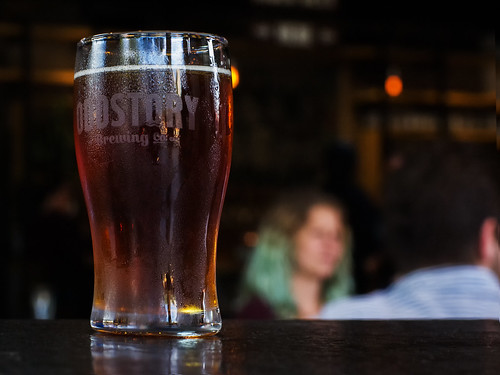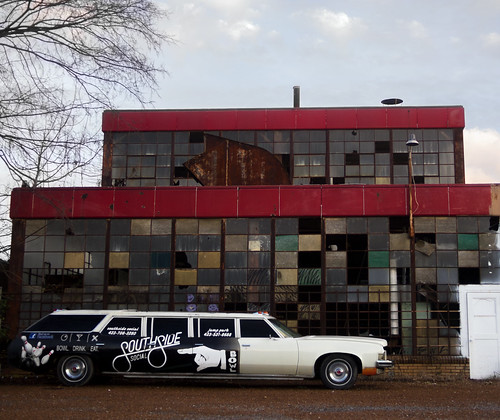A refreshing draught pint of Oktoberfest lager is served in the beer patio at Odd Story Brewing, in Chattanooga, Tennessee, USA.
Oktoberfest/Marzen lager is a beer rich in malt with a balance of clean, hop bitterness, similar to the Vienna lager. Toasted bread or biscuit-like malt aroma and flavor is to be expected. Originating in Germany, this style was traditionally brewed in the spring (“Marzen” meaning “March”) and aged, or lagered, throughout the summer. A stronger version was served at early Oktoberfest celebrations and became known as Oktoberfest. Today, the festival’s version of an Oktoberfest is quite a bit lighter than what American craft brewers consider an Oktoberfest. 5.1-6% alcohol-by-volume (abv)Craft Beer.com
***************
Oktoberfest in Munich
After a dry, two-year absence, the 'official' —and original— Oktoberfest returns today to Munich, the capital of the state of Bavaria in Germany. Since 1810 —when Bavarian Crown Prince Ludwig I organized the first Oktoberfest in Munich to celebrate his nuptials with Princess Teresa of the duchy of Saxe-Hildburghausen (now subsumed in the German state of Thuringia)— there only have been only twenty-six occasions on which the Oktoberfest festival has not been held. Of those, the most recent were last year and 2020, both cancellations due to the COVID-19 pandemic. Twice before that, disease also aborted Oktoberfest —in 1854 and 1874— but then because of cholera epidemics.Munich's Oktoberfest —often referred to as the word's biggest party, with in excess of six million vistors expected— usually runs for sixteen days, counting backward from the first Sunday in October. Since the 1990s, however, if the sixteenth day falls before 3 October (which is the German Unity Day national holiday), the festival continues until and including the 3rd. Thus, this year, Oktoberfest comprises seventeen days: 17 September through 3 October.
Munich's name, by the way, is derived from the Old German term "Munichen," meaning "by the monks," referring to Benedictine monks who founded a monastery in what would later become the city. Trappist monks —a stricter, offshoot of the order— became known in 20th-century Belgium (and, in the 21st-century, elsewhere as well) for their eponymous wine-like ales.
-----more-----

















